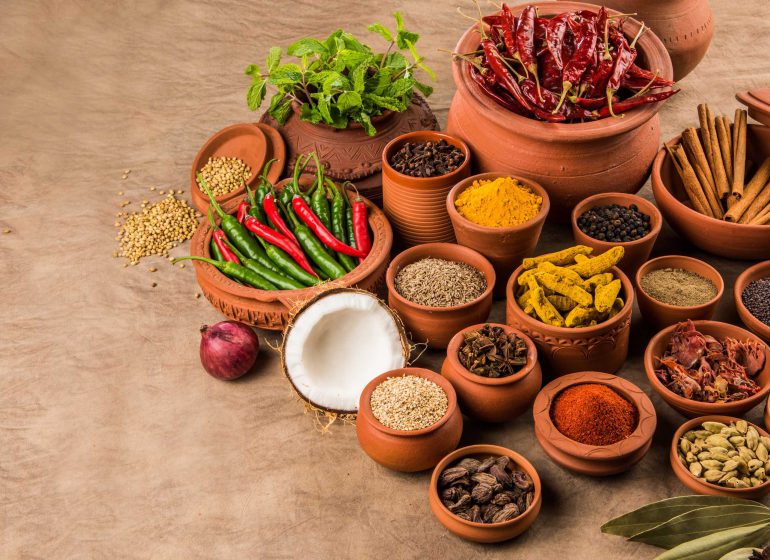Introduction: Superfoods have gained immense popularity in recent years due to their exceptional nutritional content and health benefits. In India, a land blessed with rich agricultural diversity, several indigenous superfoods have been a part of traditional diets for centuries. These superfoods not only provide nourishment but also contribute to overall well-being. Let’s delve into the world of superfoods in India and discover their remarkable qualities.
- Turmeric: Turmeric, known as the “golden spice of India,” is revered for its medicinal properties. The active compound in turmeric, curcumin, possesses powerful anti-inflammatory and antioxidant effects. It is believed to aid digestion, boost immunity, and promote healthy skin. Turmeric is commonly used in curries, teas, and as a natural food coloring.
- Moringa: Moringa, also known as the “drumstick tree,” is a nutrient-dense superfood. Its leaves are packed with vitamins, minerals, and antioxidants. Moringa leaves are a good source of iron, calcium, vitamin C, and beta-carotene. They can be added to soups, salads, or consumed as a herbal tea.
- Amaranth: Amaranth, or “rajgira,” is a gluten-free grain that is highly nutritious. It is rich in protein, fiber, and micronutrients such as iron and magnesium. Amaranth seeds can be popped like popcorn, cooked into porridge, or ground into flour for baking. It offers a versatile option for those seeking gluten-free alternatives.
- Amla: Amla, also known as Indian gooseberry, is renowned for its high vitamin C content. It possesses powerful antioxidant properties and is believed to boost immunity, aid digestion, and promote healthy hair and skin. Amla can be consumed fresh, as juice, or in dried powder form.
- Flaxseeds: Flaxseeds, or “alsi,” are a rich source of omega-3 fatty acids and fiber. They offer numerous health benefits, including improved heart health, digestion, and brain function. Flaxseeds can be ground and added to smoothies, cereals, or used as an egg substitute in vegan baking.
- Ashwagandha: Ashwagandha is an adaptogenic herb widely used in Ayurveda for its stress-relieving properties. It helps combat fatigue, improve stamina, and support adrenal health. Ashwagandha is available in powder or capsule form and can be incorporated into beverages or taken as a supplement.
- Quinoa: Quinoa has gained popularity as a protein-rich alternative to grains. It is gluten-free and contains all essential amino acids, making it a complete protein source. Quinoa can be cooked and used in salads, stir-fries, or as a replacement for rice in various dishes.
Conclusion: India is a treasure trove of superfoods, offering a wide range of nutrient-rich options to enhance health and well-being. Incorporating these indigenous superfoods into our diets can provide a natural and holistic approach to nourishing our bodies. From the vibrant turmeric to the versatile amaranth and nutrient-dense moringa, these superfoods have stood the test of time, contributing to the overall health of generations. Embrace the power of these superfoods and embark on a journey towards a healthier lifestyle.
Remember to consult a healthcare professional or nutritionist before making significant changes to your diet, especially if you have any underlying health conditions or allergies.
